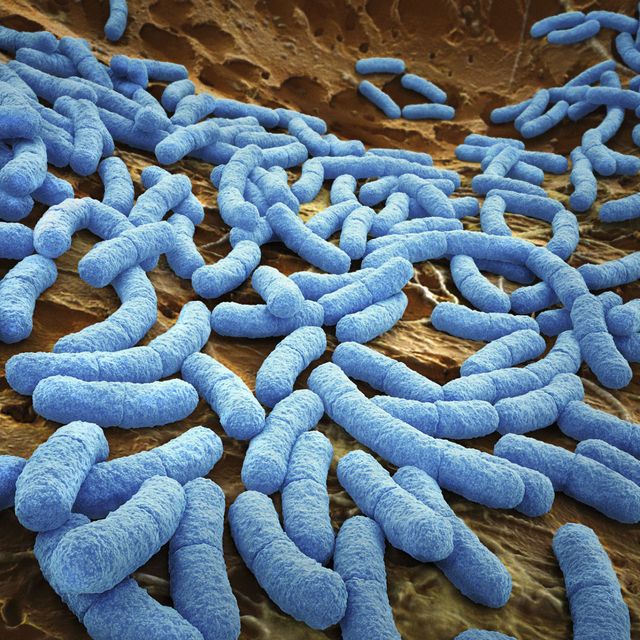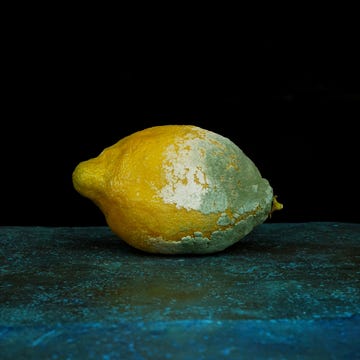One of the major problems we’ll have to deal with over the next few decades is antibiotic resistance in bacteria. The more we use our antibiotics to kill bacteria, the faster those bacteria develop immunities and the harder they are to kill. We’re rapidly running out of usable antibiotics, and there are already some bacteria strains that are resistant to everything we could throw at them.
Given that unchecked bacteria could potentially kill lots of people, many scientists are understandably looking for a new way to keep them in check. This often takes the form of a new type of antibiotic, but finding new antibiotics is difficult. Recently, a group of researchers from Georgia Tech took a different route, and turned a steel surface into a deadly forest of nanospikes that shred any bacteria cells that touch them.
These nanospikes are tiny, only about 25 nanometers long. That’s only a few atoms thick, which makes these spikes small enough to pierce a bacteria cell. Crucially, this works with both Gram-positive bacteria like Staphylococcus aureus as well as Gram-negative bacteria like E. coli which tend to be more resistant to traditional antibiotics.
The researchers can make the surface by treating standard steel with electricity while submerging it in a nitric acid solution. The process alters the surface structure of the steel, and the right amount of current and voltage can produce the kind of spikes that kill bacteria. This process is similar to the method used to polish stainless steel, so it would be easy to modify it to produce these nanospikes.
The researchers hope that their discovery could be used to produce permanently sterile surgical and medical equipment, and to keep food-processing equipment sanitary. Perhaps someday soon, you could buy a set of utensils that are permanently bacteria-free.
And if you’re wondering whether nanospikes are dangerous to people, the answer is probably not. The researchers tested the tech with mouse cells, and it turns out the spikes are too small to harm cells that big. A bacteria cell has cause to fear the tiny nanospikes, but to an organism as big as we are, it’ll just feel like normal steel.
Source: Gizmodo














